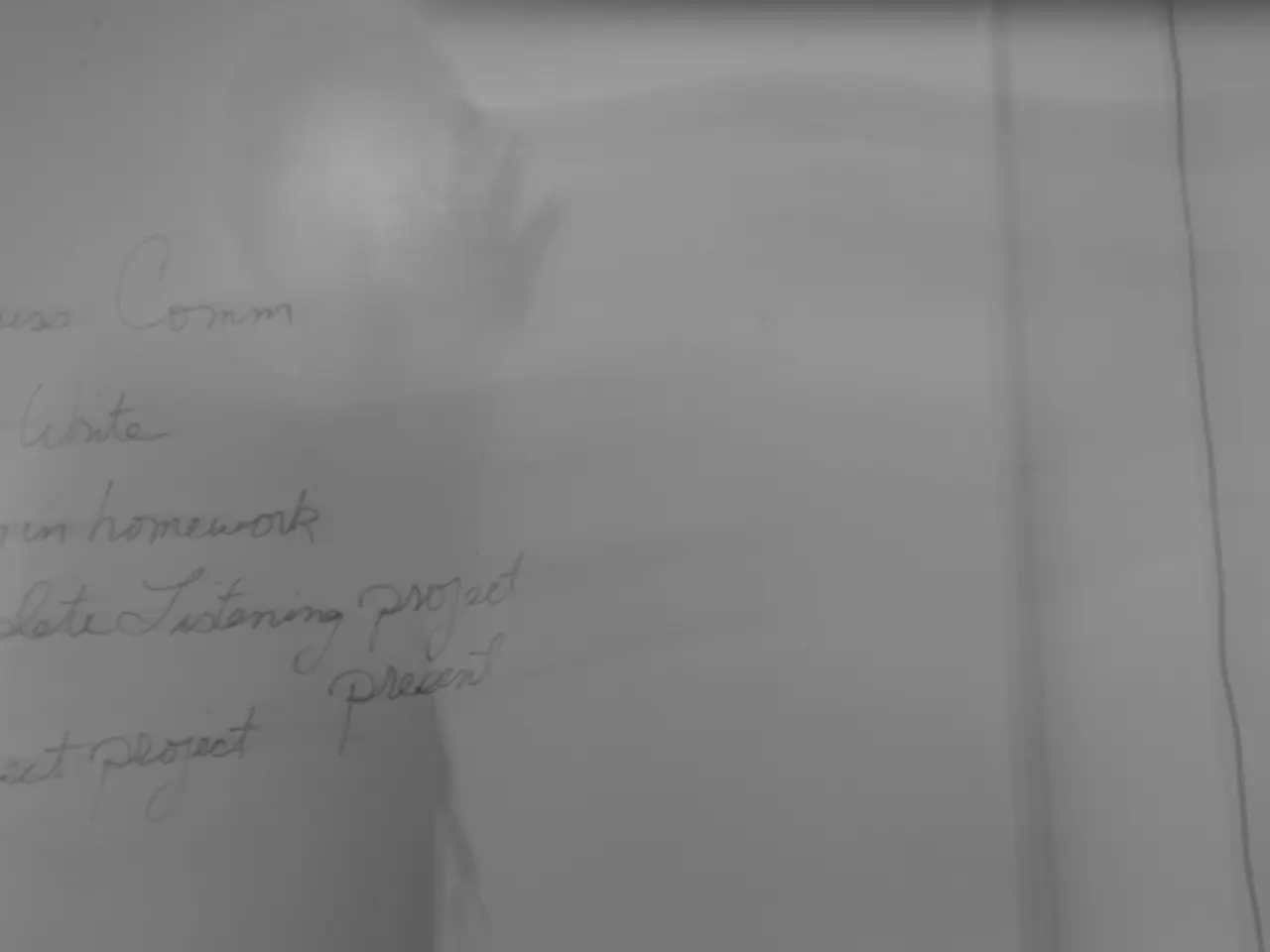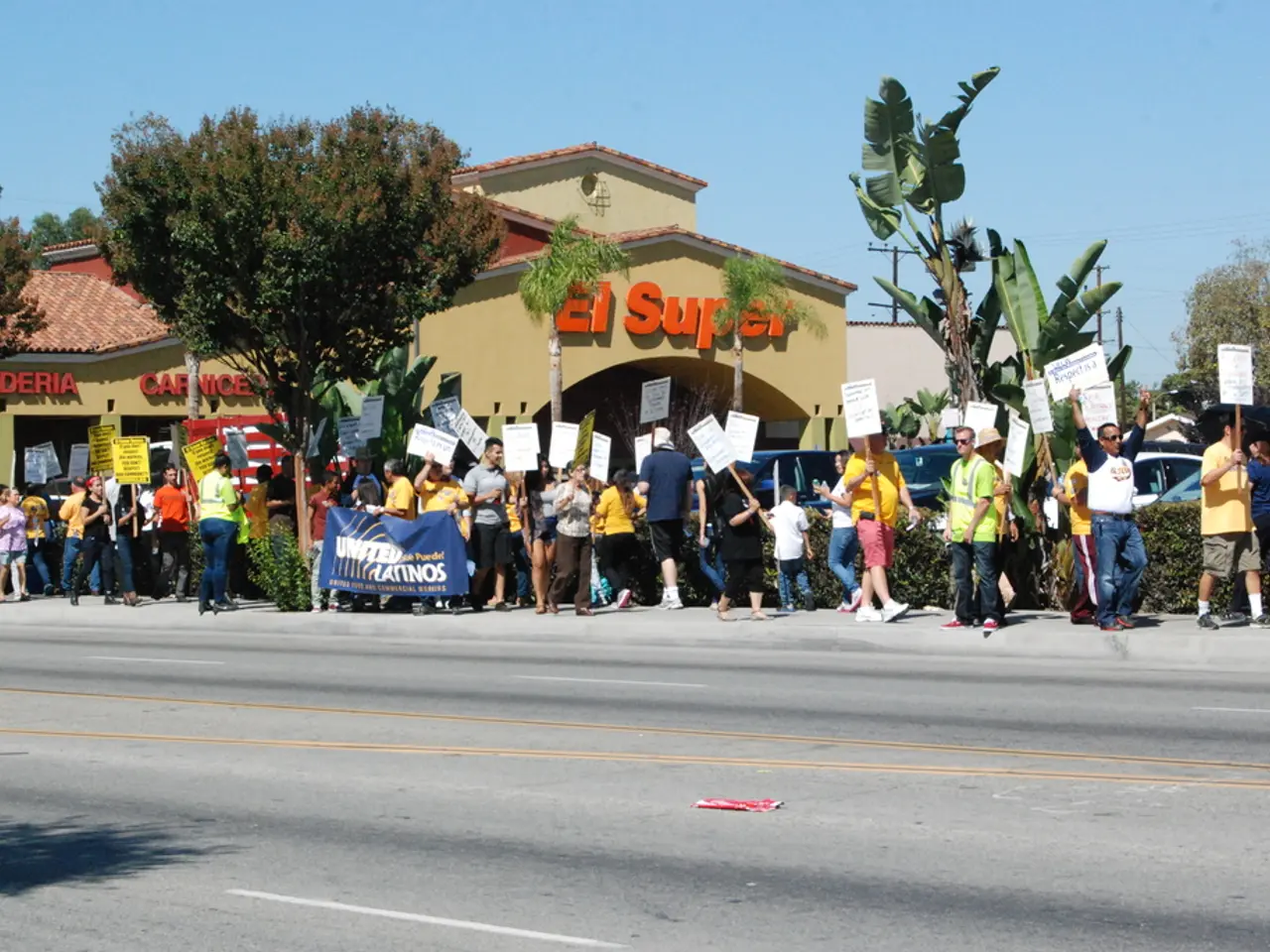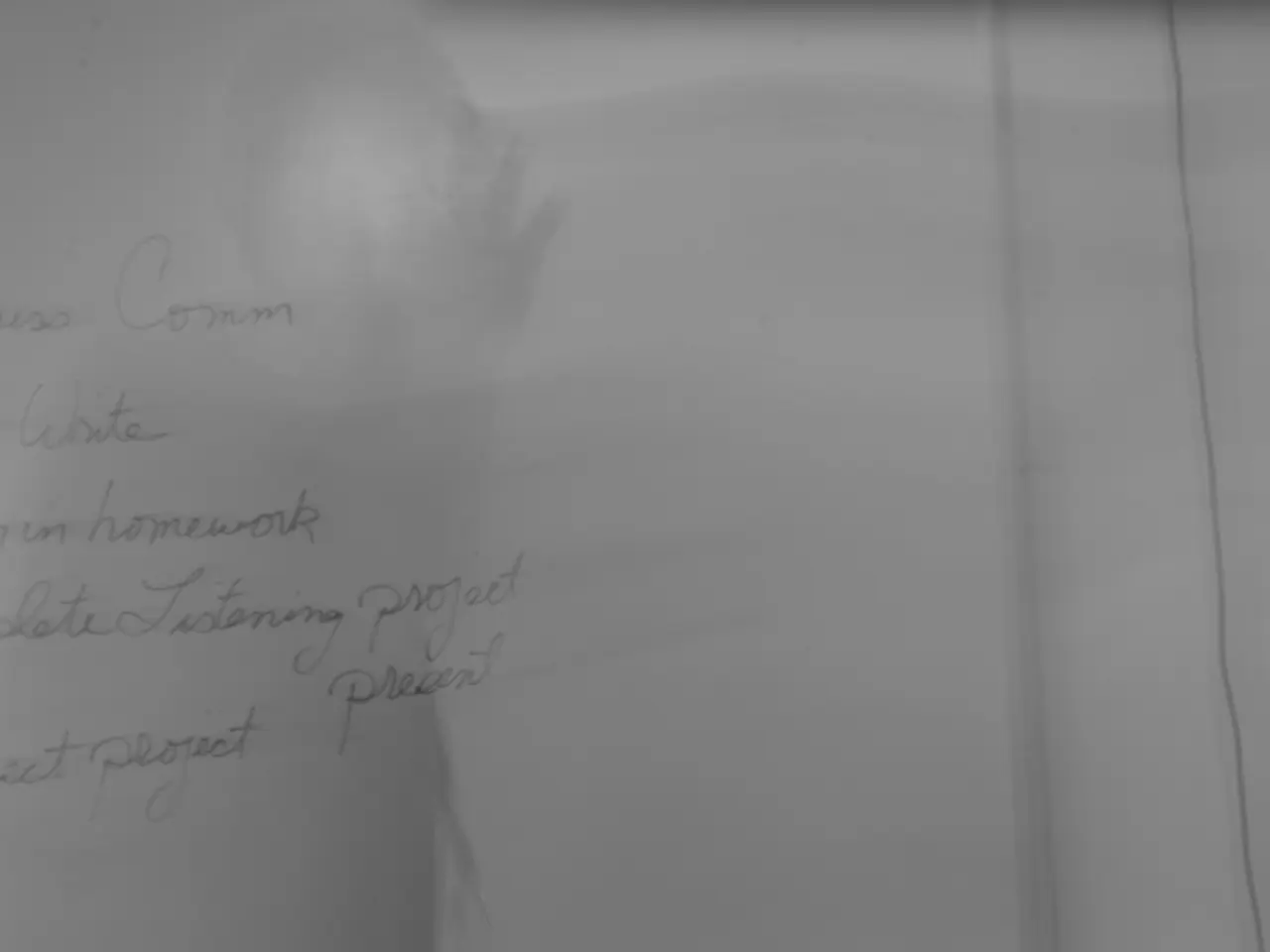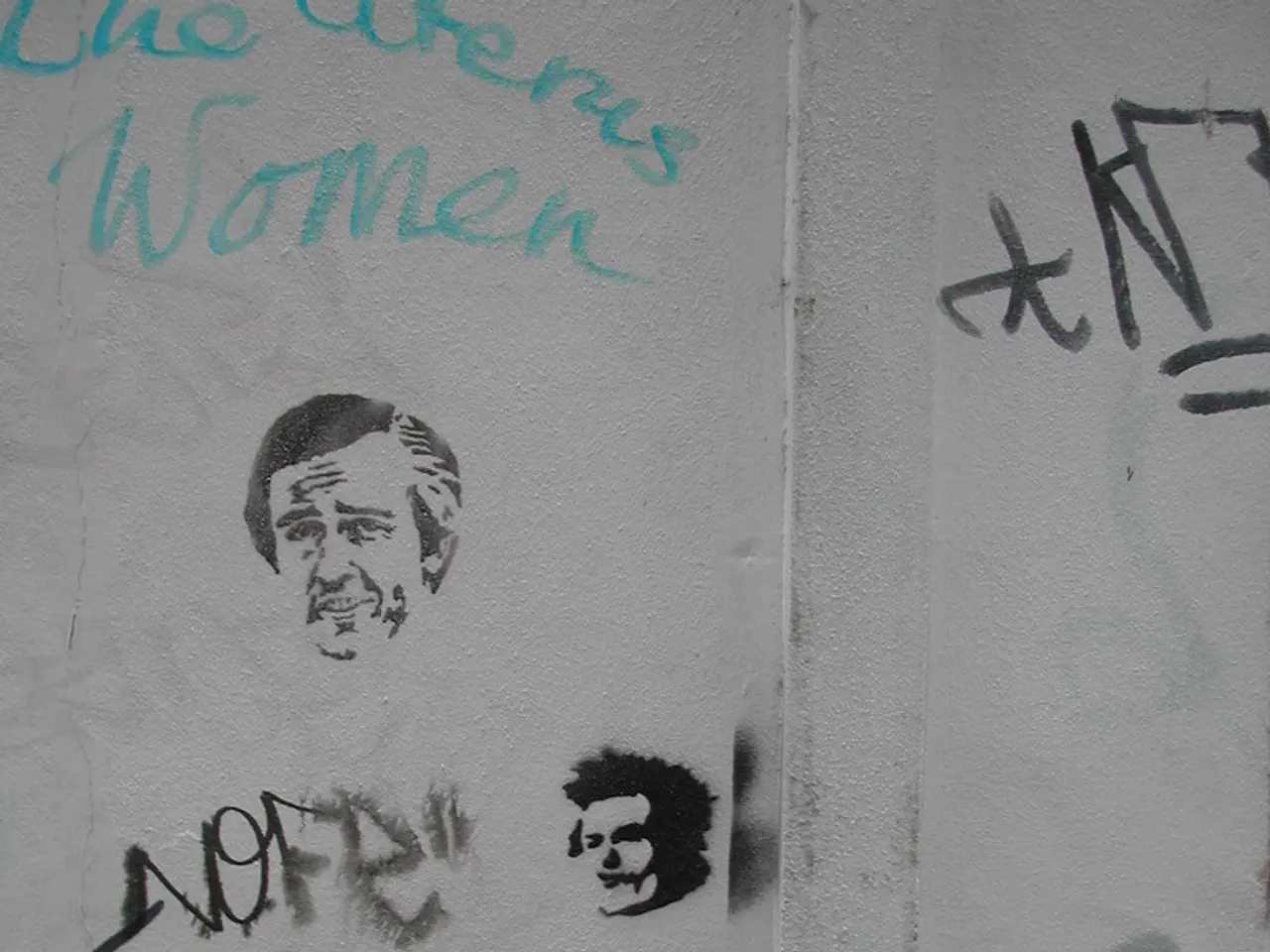Congresswoman Alexandria Ocasio-Cortez (AOC) Scorches Trump's Large-scale Legislation: "One of the Most Disappointing Days in Contemporary American History"
The Trump administration's controversial "big, beautiful bill" has passed the House, raising concerns from Rep. Alexandria Ocasio-Cortez (D-N.Y.) and immigration advocates. The bill, which includes a substantial $170 billion allocation for immigration and border enforcement, is expected to have significant and far-reaching consequences.
One of the most contentious aspects of the bill is its funding for a dramatic increase in immigration detention capacity. The bill aims to nearly double the current detention beds from about 56,000 to over 100,000, a move that critics argue will intensify mass deportations and family separations[1][2].
Moreover, a substantial portion of the funding, including a $10 billion fund for border safeguarding, comes with few guardrails or explicit guidance. This lack of oversight raises concerns about unchecked power and potential abuse within immigration enforcement agencies[1].
The bill also dismantles legal protections for immigrant children and slashes funding for critical legal and social services that assist immigrants, while rewarding ICE agents with bonuses. This approach, critics argue, prioritises enforcement over humanitarian and legal support[3].
Private prison companies, which currently hold nearly 90% of immigrants in ICE custody, stand to gain significantly from the bill. The legislation financially benefits corporations like CoreCivic and GEO Group by expanding the demand for detention facilities, effectively entrenching a for-profit detention system[2].
Critics also argue that this massive funding increase ignores systemic issues like court backlogs, lack of legal immigration pathways, and a broken asylum system. Instead, it perpetuates enforcement policies that sow fear, create chaos, and tear families apart, which can undermine public safety and community cohesion[1].
In addition, while investing heavily in immigration enforcement, the bill simultaneously deprives millions of Americans of basic health care and food assistance, reflecting a harsh policy trade-off that affects low-income and vulnerable populations[1][3].
In a social media post, Rep. Ocasio-Cortez warned of the bill's consequences, stating that its effects on hunger and sickness will be on a scale unlike anything seen before[4]. She further compared the potential impact of the bill to child's play in terms of severity, considering the consequences to be catastrophic[5].
As the bill now heads to President Trump's desk, the debate over its implications for immigration, public safety, and social welfare continues.
- The controversial bill, while focusing heavily on immigration enforcement and border safeguarding, overlooks critical healthcare and food assistance for millions of Americans, potentially leading to unprecedented levels of hunger and sickness.
- The bill's provision for a rapidly increased immigration detention capacity, aiming to double the current detention beds, has sparked concerns about intensified mass deportations and family separations, as well as potential abuse within immigration enforcement agencies.
- In the realm of politics and policy-and-legislation, the Trump administration's bill, with its focus on war-and-conflicts (immigration enforcement) and a lack of guidance on critical funds, raises questions about unchecked power and the prioritization of enforcement over humanitarian and legal support for vulnerable populations, thereby undermining general news stories on public safety and community cohesion.





